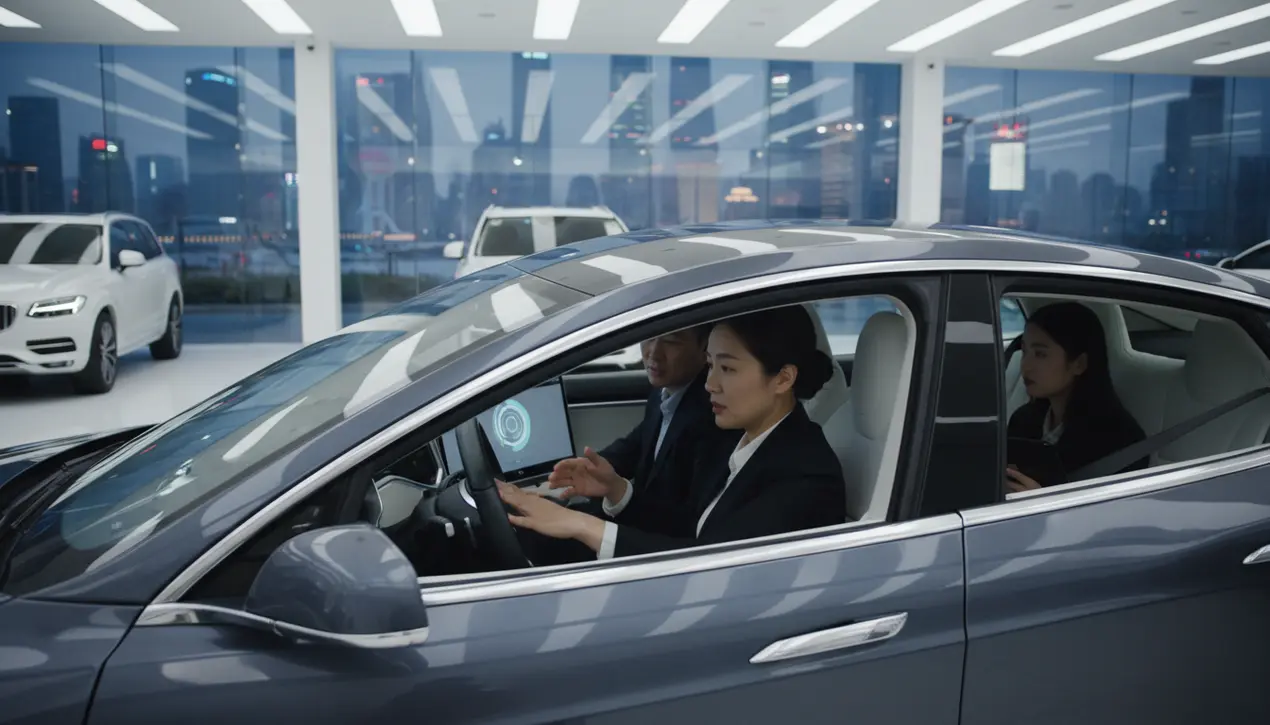
AIai regulationChina AI Regulation
Tesla, Volvo, Mercedes Get China Approval for Car AI Chatbots
MI
Michael Ross
2 hours ago7 min read
In a move that signals a fascinating shift in the global AI regulatory landscape, Tesla, Volvo, and Mercedes-Benz have successfully navigated the intricate approval process to deploy AI-powered chatbots within their vehicles in China. This development, greenlit by the Cyberspace Administration of Beijing and its Shanghai counterpart, is more than a simple feature update; it's a potential watershed moment for foreign technology integration into one of the world's most crucial markets.The approvals, registered for services like the 'Mercedes-Benz virtual assistant' and Tesla Shanghai's 'xBot', suggest a possible acceleration in Beijing's notoriously meticulous vetting of generative AI services, a process often compared to Asimov's own fictional 'Laws of Robotics' in its attempt to impose order on a powerful and unpredictable technology. For years, international automakers have operated within a complex framework of data security and AI governance laws in China, where the balance between innovation and state control is constantly being recalibrated.This breakthrough for Tesla, Volvo, and Mercedes could be interpreted as a strategic opening, a carefully managed experiment to gauge public interaction with foreign-developed AI in the intimate, data-rich environment of a personal vehicle. The implications are profound, touching upon core debates in AI ethics and policy: the privacy concerns of always-listening assistants, the liability in autonomous decision-making, and the cultural nuances of human-machine interaction.Unlike the more laissez-faire approaches seen in some Western nations, China's model presents a compelling alternative—a state-supervised pathway to AI adoption that prioritizes stability and alignment with national standards. This approval doesn't just allow for more conversational navigation or entertainment systems; it embeds a slice of foreign AI logic into the daily lives of Chinese consumers, creating a real-world laboratory for cross-cultural AI integration.The cautious optimism from policy analysts is tempered by the understanding that this is likely a controlled rollout, with the performance and societal impact of these chatbots being closely monitored. Should this experiment be deemed a success, it could pave the way for a flood of similar approvals, fundamentally altering the competitive dynamics in the Chinese auto industry and forcing domestic players to accelerate their own AI offerings.Conversely, any misstep—be it a privacy scandal, a security flaw, or simply public unease—could see the regulatory gates slam shut just as quickly. This moment encapsulates the central tension in modern AI policy: the relentless drive for technological advancement versus the imperative for thoughtful, risk-aware governance. The road ahead for these AI-driven cars in China will be a critical case study, watched closely by global policymakers and tech giants alike, as it may very well chart the course for how the world's major powers choose to coexist with and control the increasingly intelligent machines in their midst.
#Tesla
#Volvo
#Mercedes-Benz
#AI chatbots
#cars
#China
#regulation
#approval
#featured
Stay Informed. Act Smarter.
Get weekly highlights, major headlines, and expert insights — then put your knowledge to work in our live prediction markets.
Related News
Comments
Loading comments...
© 2025 Outpoll Service LTD. All rights reserved.